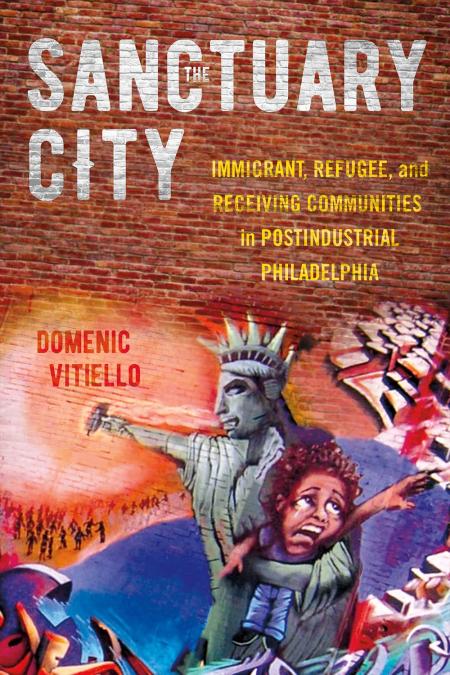Congratulations to Domenic Vitiello—our Weitzman colleague, member of our graduate group, and Penn History PhD—on winning the Kenneth Jackson Award from the Urban History Association! 
DOMENIC VITIELLO
The Sanctuary City Immigrant, Refugee, and Receiving Communities in Postindustrial Philadelphia
(Cornell University Press, 2022)
Domenic Vitiello offers a book that is timely and important. His new work, Sanctuary City: Immigrant, Refugee, and Receiving Communities in Postindustrial Philadelphia (Cornell), takes on a broad reading of the concept of sanctuary in the twenty-first-century city. Vitiello writes, "Americans' fights over sanctuary and sanctuary cities are, at their heart, about which newcomers deserve protection and support and of what kinds" (1). Blending immigrant and urban history, Vitiello studies Central American, Southeast Asian, Liberian, Iraqi, Syrian, and Palestinian immigration to Pennsylvania's largest city. He asks "about these different groups' experiences of migration and settlement in Philadelphia and how they and their allies in receiving communities organized to address the problems they faced, to seek their own forms of sanctuary" (3). Vitiello came to this historical scholarship via activism, and his work reveals access to voices and documents that usually lay outside the scholarly grasp. The Sanctuary City poses a challenge: to current immigration policy and to the idea that welcoming immigrants and refugees with care and compassion causes harm. This gripping new text evolved from his course, "The Immigrant City," an offering that spurred and strengthened the research. Urban scholars have a lot of work to do on this subject, and Vitiello has given us a strong start. In the city of Sisterly Affection, and Brotherly Love, immigrants and refugees are neither uprooted or transplanted; instead, they are seeds of demographic, communal and economic transformations that enrich the urban environment as a whole. The Sanctuary City is deeply researched, wildly creative, and opens new ways of seeing and understanding urban America and its connectedness to the world.
Text from UrbanHistory.org
